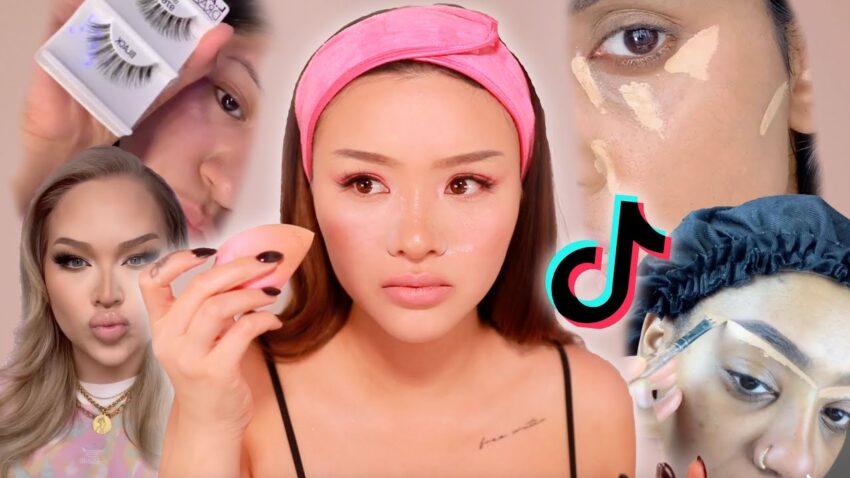The rise of pre-teen girls showcasing makeup and skincare products on TikTok, known as Sephora Kids, has raised concerns among specialists about the impact on children’s mental and physical well-being.
Primarily popular in the United States, girls aged between eight and 12 are amassing a significant following by featuring their makeup hauls on the video platform.
The trend, heavily influenced by the high-street brand Sephora and endorsed by celebrities like Kim Kardashian’s daughter North West, sees young girls enthusiastically promoting products and mimicking adult makeup tutorials.
Health experts have cautioned that some of the products endorsed in these videos, like those containing retinol, may not be suitable for young and delicate skin.
Dermatologist Danilo Del Campo highlighted that the young skin influencers are sometimes seen as more trustworthy than medical professionals, leading to an increase in skin-related consultations due to adverse reactions from product misuse.
Despite the potential risks involved, many parents are unaware of the dangers posed by these products.
The ‘Sephora Kids’ emulate renowned beauty influencers by reviewing luxury skincare products, leaving some astonished by their extravagant spending habits.
However, the excessive use of unsuitable ingredients can lead to long-term damage to the skin, with young children developing self-esteem issues from trying to rectify perceived flaws.
Reports have surfaced of disruptive behavior by young customers at Sephora stores, with employees expressing frustration over spilled products and disorganized makeup counters in videos.
While Sephora has not responded to requests for comment on the matter, psychoanalyst Michael Stora pointed out that the girls in these videos are more than just playing with dolls—they become the dolls themselves.
Critics argue that parents are inadvertently objectifying their children by encouraging this trend, exacerbating societal pressures on young girls to conform to unrealistic beauty standards at an early age.
Furthermore, concerns have been raised about the stereotypical portrayal of girls and women in online videos, contributing to gender biases and placing undue pressure on young girls.
A recent study published in the Nature journal highlighted the amplified gender biases perpetuated by online content, especially pertaining to women.
In the wake of growing concerns over the impact of social media on young individuals, platforms like TikTok have faced scrutiny for failing to adequately address online risks faced by children, including exposure to harmful content and potential predators.
As the debate around the influence of social media platforms on youth continues, stakeholders are urged to take proactive measures to safeguard the well-being of young users and mitigate the adverse effects of online trends.
*Note:
1. Source: Coherent Market Insights, Public sources, Desk research
2. We have leveraged AI tools to mine information and compile it

